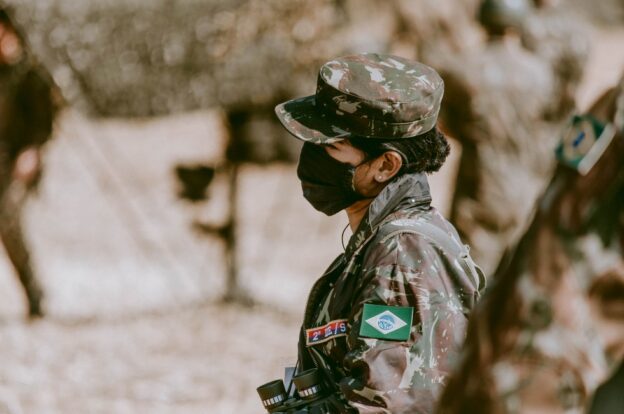Serving in the military is an extremely brave and noble service. But it can also take a big toll on one’s mental health. It is a major sacrifice to be away from friends and family members for months or even years on end. Even more than that, many service men and women struggle with mental health problems as a result of what they see and experience while they are away on active duty. They may have seen terrible acts of violence and even the loss of life.
A huge aspect of being in the military is being mentally and physically tough. This often means shoving away your emotions only to have to face them at a later time. If you have a female friend who has recently returned home from active duty, you may be wondering how you can best support her. This can be a delicate situation, but there are some do’s and don’t to consider.
What Should I Do and Not Do in Supporting My Military Friend Home From Active Duty?
When your friend first returns home from active duty, she’s probably going to be experiencing a wide range of emotions, especially if she has been gone for a long time. She may be feeling overwhelmed with the attention she may be getting from friends and family members that she’s been away from. Your friend may also still be processing the many things she experienced while on duty. What you don’t want to do is crowd her or make her feel like she has to give you lots of time and energy right away. Let her know that you’re there for her, but give her space. She’ll come to you when she is ready.
When you do end up speaking with your friend, make sure that you don’t pry or ask for specific details regarding her time away. Some of her memories may be very triggering, and talking about them may upset them. Instead, encourage her to share as much or as little as she chooses. Be sure to listen more than you talk, and don’t try to provide unsolicited advice.
Your friend may appear to have changed during her time away in service. These changes may affect her personality, what she wants to talk about, or even what types of music or movies she enjoys. This can be a result of coping with experiences she has gone through. Instead of pointing out these changes or trying to get her to switch back, accept her as she is now. In time, she may adjust back to her old self.
How Do I Know if My Friend Is Struggling With PTSD?
Many people who serve in the military later struggle with post-traumatic stress disorder (PTSD) as a result of what they experienced. While your friend is likely well aware of this disorder, she may deny that she has a mental health problem. This is often tied to her experience of having to be very tough. If you think your friend may be struggling with PTSD, remind them that asking for help when it comes to your health is not weak. In many cases, people who avoid seeking treatment for
PTSD wind up turning to substance use as a way of coping with the pain; this can just make things worse.
Some common signs of PTSD include:
- Having vivid flashbacks
- Avoiding emotions
- Always feeling on edge
- Physically reacting to sounds, smells, or things that remind them of their trauma
- Having trouble expressing emotions
- Not wanting to be affectionate with others
- Feeling a lack of trust
How Does The Ho Tai Way Help Treat Military Women?
The Ho Tai Way has helped treat many women associated with the military. This includes not only those in active duty but family members of service men and women and female veterans. The military can be a difficult place for a woman, especially as they are often outnumbered by men. Women can also often become the victims of verbal, physical, and sexual abuse at the hands of men.
At our facility, we believe that our service women deserve a place where they can heal from trauma and substance misuse without having to worry about being uncomfortable or triggered. This is part of the reason why we are a female-only facility. We are also very well aware that our military patients may have come from incredibly upsetting situations. While being conscious of this, we offer trauma-informed care. This allows our patients to heal at their own pace.
One unique treatment that we offer at our facility is eye movement desensitization and reprocessing (EMDR). This type of treatment is specifically used to treat trauma and PTSD. It involves reprocessing certain traumatic memories so that they no longer have the same effect on the patient. This is done by directing them to move their eyes in certain directions while being questioned about past memories.
Being a serviceman or woman is a very noble thing, but it can also be very traumatizing. Some people who serve in the military end up struggling with PTSD as a result of what they experienced. Some people turn to substance misuse in order to deal with the pain. If you have a friend who has recently returned home from active duty, you likely want to support her in any way you can. Remember to give her space and don’t pry for details. If you’re struggling with substance use disorder, our team at The Ho Tai Way can help. Call (714) 581-3974 today and we can answer any of your questions.









